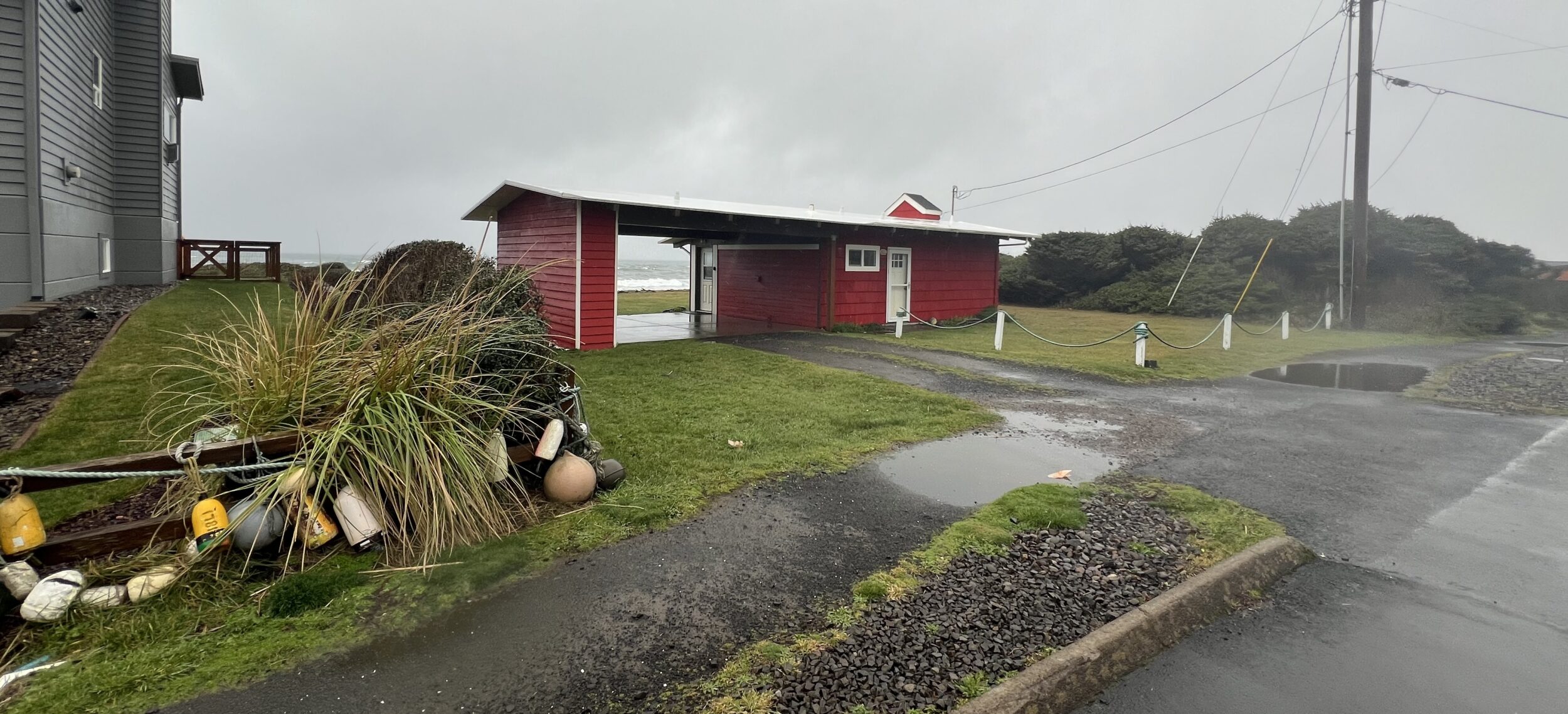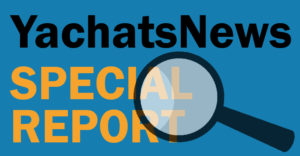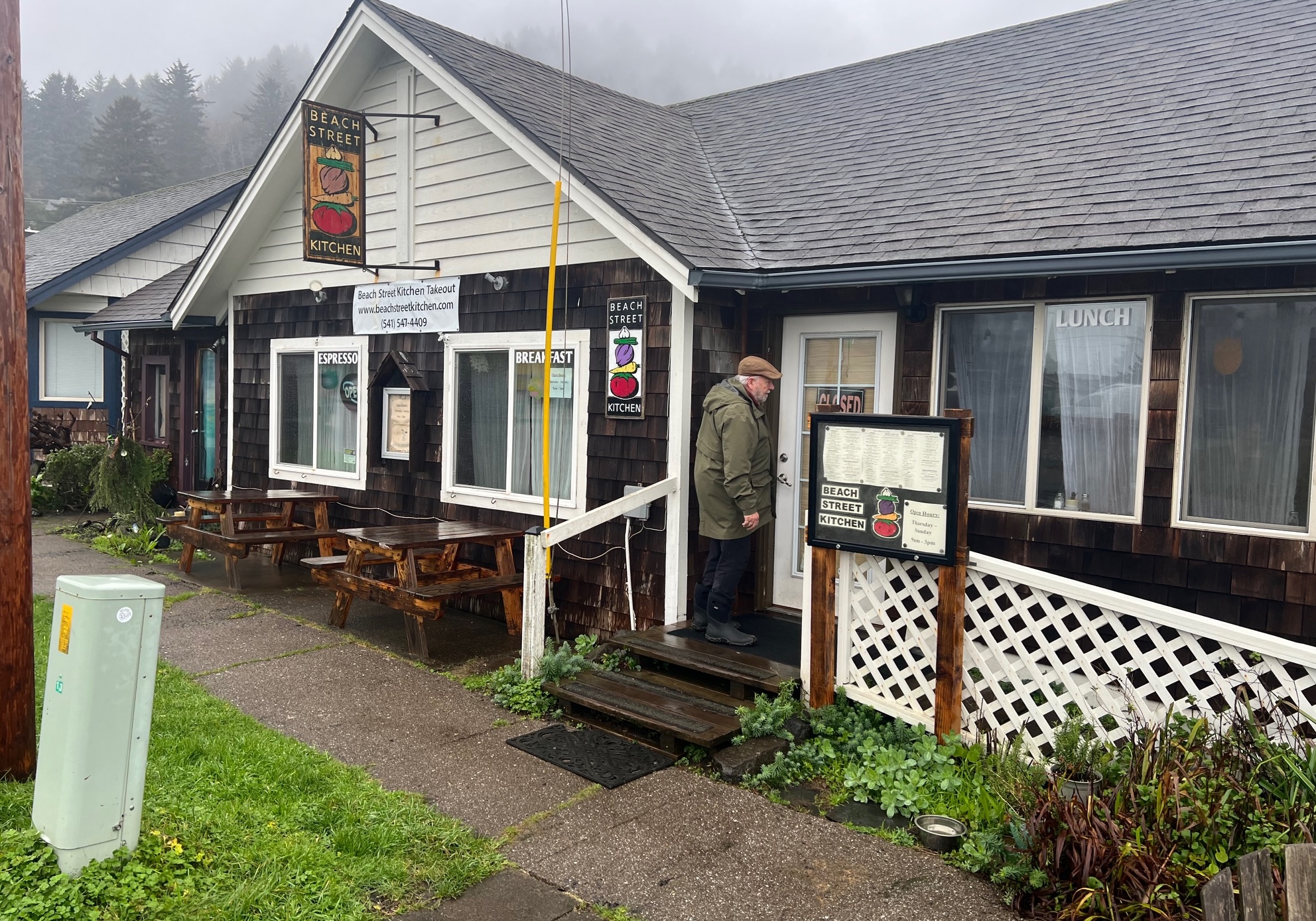
By GARRET JAROS/YachatsNews
YACHATS – As Yachats considers raising its lodging taxes to finance its operations, projects and tourist amenities, the city appears to be missing out on an additional $100,000 a year in revenue by not fully utilizing the 125 vacation rentals allowed to operate in the city.
The city has also not collected at least $45,000 in unpaid food and beverage taxes — plus penalties – from four Yachats restaurants which have been getting the money from customers.
 Restaurants are required to pay the city’s 5 percent tax on prepared food and beverages quarterly. The money is solely used to pay off the loan on the city’s wastewater treatment plant.
Restaurants are required to pay the city’s 5 percent tax on prepared food and beverages quarterly. The money is solely used to pay off the loan on the city’s wastewater treatment plant.
Two restaurants have not paid the tax going back nearly two years. Another skipped a payment a year ago that is estimated to be $25,000. All four establishments remain open despite a city ordinance requiring payment and penalties under threat of losing their business licenses.
The city’s finance committee brought the issue of vacation rental revenue and uncollected food and beverage taxes to the attention of newly-hired city manager Bobbi Price at its December meeting.
Here’s the background:
- Mayor Craig Berdie suggested in December that Yachats follow Lincoln County’s lead in raising its lodging tax on motels and vacation rentals to as much as 12 percent. In November, voters approved the county raising its lodging tax in unincorporated areas from 10 to 12 percent. Yachats is at 9 percent.
- Newport, Lincoln City, Depoe Bay and now Waldport are at 12 percent. But before raising the tax, the Yachats city council tasked city staff to run the numbers on how much each additional one percentage point up to 12 percent would add to city coffers. Price returned with an estimate of approximately $150,000 over an 18-month period for each one percentage point the tax is raised.
- However, Price asked the council to hold off raising the tax until she could determine what projects the additional revenue would go toward. The city already has millions in capital reserves from lodging taxes and other sources earmarked for projects but hopes to tackle more projects. Local motel managers also spoke against raising the tax and the council tabled any more discussion or decision until Price comes back with more information on what projects the city has slated.
Vacation rental homes
But what the finance committee made clear earlier last month is that only 88 of the city’s potential 125 vacation home rentals reported an income. There are 113 licensed rentals, leaving 12 licenses that could be issued to homeowners on a city waiting list – but have not been issued.
And 24 of the 113 reported no income in 2023 even if some are operating. That’s because their income is reported through a third-party vacation rental company that does not share individual customer information with the city but submits the payments in one lump sum. The city has no way of tracking those.
That means the city has no idea which of those 24 licenses are active and which are not. The city also has no monitoring system in place to check the veracity of those zero-claim amounts.
Yachats’ 9 percent “transient rental tax” – as it is officially called – is the city’s biggest source of revenue and brought in $1.4 million during the 2022-23 fiscal year.
Motels provide 78 percent of that tax and vacation rentals 22 percent. Those taxes are currently divided in how they are spent — with 61 percent going into the city’s general operating fund and 39 percent going into a visitor amenities fund that must be used for projects that benefit tourism.
The 88 vacation rentals that reported income in 2023 contributed a total of $350,000, which averages out to $3,977 per license. In addition, each license costs $350 a year.
The finance committee estimates that if the 24 licenses which reported no income each earned that average amount, the city would get an additional $95,448 a year. The third party which collects for those 24 however, paid a lump sum of $45,000 for 2023. That leaves $50,488 unaccounted for.
Add in an estimated $51,701 from the 13 unissued licenses and the city has a potential total of $102,149 in lodging taxes it could be collecting.
Deputy city recorder Kimmie Jackson told the finance committee in December that a “good number” of the 24 who report no income “always report zero because they’re just not renting.”
Committee member Charles Bame-Aldred questioned why a city asset that could be bringing a steady income is allowed sit inactive for the price of the $350 annual license fee.
Jackson told him the city has no requirement that licenses earn income, and committee member Tom Lauritzen explained the history.
“We allowed people to buy licenses without a requirement to rent,” Lauritzen said. “And the theory was there were enough people in town willing to pay that $350 a year to minimize the number of rentals that are available for tourists coming into town.”
Both Lauritzen and Bame-Aldred then agreed from a finance perspective they would rather see Yachats collect on active licenses.

“But that is a policy question for city council,” Lauritzen said. “There’s a lot of moving parts here … you’ve got this county thing where they’re working hard to restrict vacation rental licenses because of the impact on the residential neighborhoods. I don’t know what our council’s appetite is for it.”
Price requested the committee formalize its recommendation so she could take it to council.
Another issue with collecting lodging taxes is that it — like the food and beverage tax — relies on license holders to “self-report” how much is earned and thus how much is owed. While food and beverage tax collection can be cross-checked against federal income taxes, lodging taxes cannot.
Lauritzen suggested the city could track whether vacation rental manager or owners reporting no income are indeed not renting by checking their water use. He also recommended the city amend its rental ordinance so that homeowners who have a license must report their earnings and taxes owed.
“We need to hold the license holder (responsible), not the third party,” Lauritzen said. “We should not allow the homeowner to wipe their hands of the reporting responsibility. They know how much they are due from third parties. They know – tell us.”
“… we have a glaring weakness in our reporting and it’s time to fix it,” he added.

Uncollected food/beverage taxes
Of the 16 licensed restaurants, groceries and food trucks operating in Yachats, four are delinquent in paying some portion of the 5 percent food and beverage tax they collect from customers on the city’s behalf. The names of the establishments are not public record.
Yachats is one of three cities in Oregon that charges a 5 percent tax on prepared foods and beverages. Restaurants are required to collect that money from customers and then pass it on to the city in four annual payments.
The city collected $186,000 in food and beverage tax in 2023, which despite the missing payments, is $11,000 more than it collected the previous year.
Here are the issues with four Yachats establishments, according to city documents provided YachatsNews:
- One skipped three quarterly payments in 2023;
- One has not made a payment in the last eight quarters dating back to October 2022;
- One has not made a payment in the past nine quarters dating to July 2021; and,
- The fourth missed an April/May/June 2022 payment, but its payment history indicates the amount owed to be about $25,000.
All are still operating.
Why the taxes and penalties for not paying have not been collected or why the city has not revoked business licenses — all of which is prescribed by city ordinance — has been chalked up to staffing issues and three years of turnover at the city manager position.
At the finance committee meeting last month, Lauritzen said “… by allowing restaurants to stay open and not pay, we’re basically subsidizing them 5 percent of their sales at the detriment of the other restaurants that are actually paying.”
Yachats’ municipal code states that any businesses that fails to pay any portion of the tax within 30 days of it being due, must pay a penalty of 10 percent of the amount of the tax and a delinquency fee of $100 – in addition to the original tax. If the tax and fees are not paid within another 30 days an additional 10 percent is tacked on for each 30 days until payments are caught up.

Jackson told the finance committee in December that she sent notices to the delinquent businesses two weeks earlier, added that “nobody gets a free lunch” and that she can revoke licenses without city council approval. If businesses disagree with the amount owed or their license revocation they can appeal to city council.
“We send a letter that says you have this amount of time to pay it,” Jackson said last month. “If they don’t pay it in that 30 days, we revoke the license. Now going in and shutting down their business physically, that’s out of my hands. That becomes a code enforcement issue.”
But the city’s license revoking process remains unclear if one business has skipped eight quarterly payments in a row and another nine.
YachatsNews submitted a public records request with the city several weeks ago to find out when and how many notices have been sent to delinquent businesses. That request had not been answered by Wednesday.
YachatsNews followed with an email to Price on Jan. 9 asking why the licenses have not been revoked, whether Jackson was correct in stating she could revoke them without council approval, and to confirm the city has a waiting list for the 13 unissued vacation rental licenses.
Price responded in part Wednesday morning by saying there was an appeal of food and beverage tax fines on the council’s Wednesday afternoon agenda by the owners of the Beach Street Kitchen, who had been sent a letter threatening to revoke their license if they did not pay the taxes and fines.
Its owners owe the city $28,772 in taxes and fines for 2022 alone. It has not yet been determined how much they owe for 2023.
One of Beach Street’s owners, Brian Hobert, appeared before the city council Wednesday to appeal paying the full, accumulated penalties the restaurant has been assessed. The unpaid tax portion of the total owed is $5,100.
- Garret Jaros is YachatsNews’ full-time reporter and can be reached at GJaros@YachatsNews.com




Please identify the 4 four businesses that are delinquent. I would prefer to support businesses that are paying the taxes.
I would gladly help those businesses by sharing how we’ve been handling on the daily our food and beverage taxes since day one. First, we don’t raise our menu prices to absorb the F&B tax we pull the tax amount nightly, yes every night when settling our square register. Our POS clearly computes the tax. At end of day I transfer that tax to a separate bank account where it sits until time to pay our quarterlies. Even before opening separate bank account I hoarded the tax daily in cash! If our little shop can do it….
I agree, the delinquent restaurants ought be public information.
This is Angie at LeRoy’s Blue Whale. So you know, we have always complied and forwarded the tax that was collected from customers because that money is not ours.
We have a Comprehensive Land Use Plan that does not envision transforming Yachats into a for-profit theme park. But 39% of our largest source of income is earmarked to expand tourist amenities in perpetuity. How do we spend that money, year-after-year, and still stay in harmony with our Comprehensive Plan, and community base land use? The hotel, motel, and a vacation rental operators already have outsized influence in City Council decisions. How do we weigh the needs, desires, and aspirations of the local community in light of perpetually funded tourist amenities, a growing pool of tourists activities, and increasing tourist revenue. I believe Goal K of the Comprehensive Plan provides the answer.
Goal K requires that the City establish a public participation plan that details how the community will influence land use decisions. There is currently no systematic or organized method by which the greater community participates and influences land use decisions.
The City is currently derelict in its obligation to create the required public participation plan, even though our Comprehensive Plan claims that we are currently using our adopted participation plan. Last Year I asked the City Council to implement Goal K. The City Council declined, claiming that Yachats has enough public influence.
If you care about the future of Yachats, stop volunteering to help create a theme park, and start demanding land use in accordance with our Comprehensive Land Use Plan.
Wow collecting the tax but not turning it over is shady as heck. Those businesses need to be named. What is their reasoning behind their failure to do as others have to do? What makes them special?
I completely agree with Doug. The council is stacked with those that are commerce focused, and do little, if anything, with residents’ concerns in mind. It’s all about businesses and tourists and the money they generate.
And why aren’t the restaurants names public record? Why is violating the law for *a business* not a matter of public record? Why are *businesses* allowed to operate after violation after violation? Noncompliance with zoning laws, and masquerading in the name of “employee housing”, then refusing to comply with cease and desist orders. No problem. And no construction permits/inspections. No problem.
And it’s all in the name of commerce and how “we don’t want to hurt our small businesses”.
Hogwash.
I agree that a business should pay reasonable fees on overdue bills. Often a business will charge 1.5% late fees on overdue bills. That is 1.5% compounded monthly. 10% compounded monthly is well into the loan sharking range. I doubt that was what was intended when the ordinance was written.
The general usury rate for personal loans in Oregon below $50,000 is 12% or 5% above discount rate for commercial paper. That is Oregon law. The fees are not personal loans, still the council should review and change the ordinance to be more reasonable.
It should not be the intent of the City to overburden business owners with excessive penalties.
I strongly agree with those who say the restaurants failing to forward their tax collections should be named publicly. And they should not be given a break. What they’ve done is completely irresponsible operation of a business. If anything, they should be charged with theft.